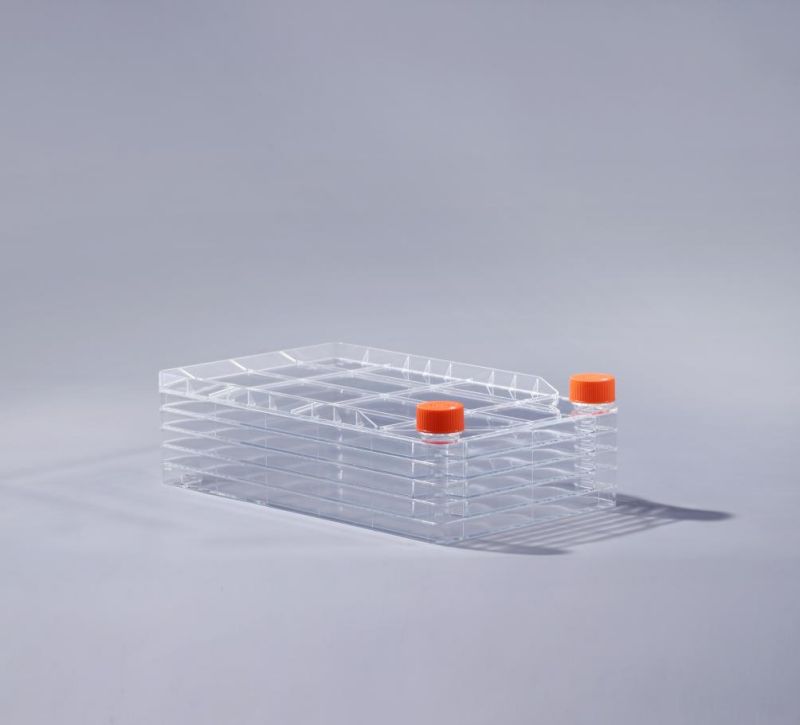Cell factory is a kind of cell culture container made of polystyrene raw material. In order to meet the growth needs of cells, this raw material must meet the relevant requirements of USP Class VI and ensure that the raw material does not contain factors affecting cell growth. So, in the USP Class VI standard, what test items should raw materials go through?
The United States Pharmacopeia classification of medical materials is 6, ranging from USP class I to USP class VI, with USP class VI being the highest grade. In accordance with the USP-NF General Rules, plastics subjected to in vivo biological response testing will be assigned to a designated medical plastic classification. The purpose of the testing is to determine the biocompatibility of plastics for use in medical devices, implants, and other systems.
Chapter 88 of USP Class VI deals with in vivo bioreactivity testing, which aims to determine the bioreactivity effects of elastic materials on living animals. The feedstock of the cell factory includes three test requirements: 1. Systemic injection test: The sample of the compound is prepared with a specific extract (e.g., vegetable oil), and polyethylene glycol is applied to the skin, inhaled, or orally. The test measures toxicity and irritation. 2. Intradermal test: The compound sample is exposed to living subcutaneous tissue (the tissue that the medical device/device plans to contact). The test measures toxicity and local irritation. 3. Implantation: The compound is implanted into the muscle of the sample. The test measures virulence, infection and irritation.
please contact Whatsapp & Wechat : +86 180 8048 1709
Post time: Dec-27-2023





